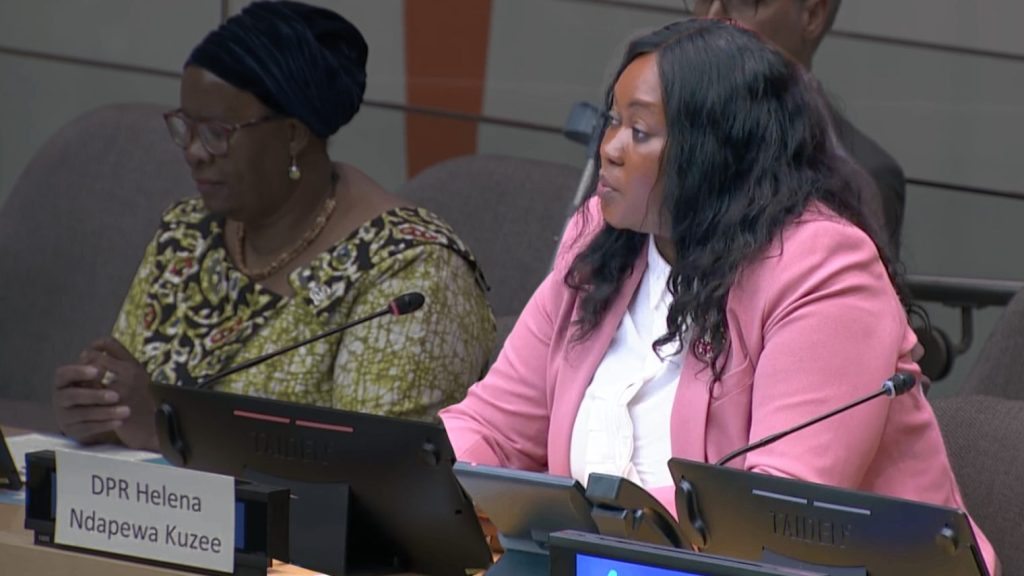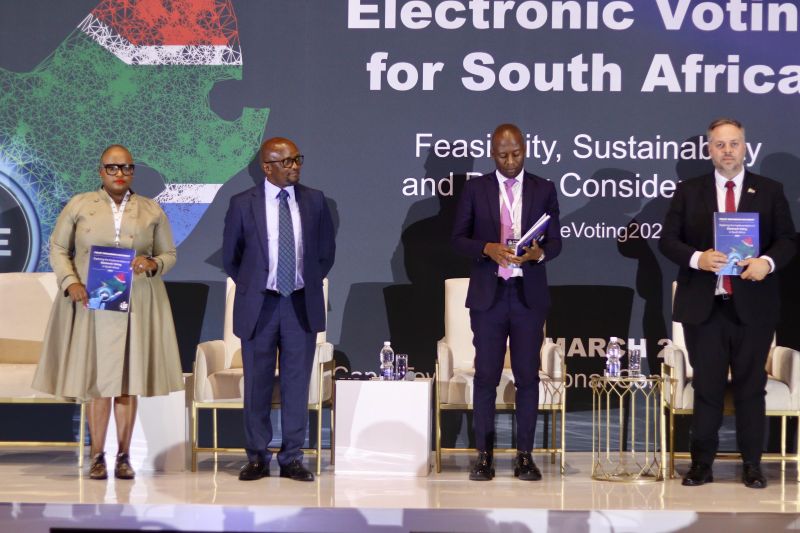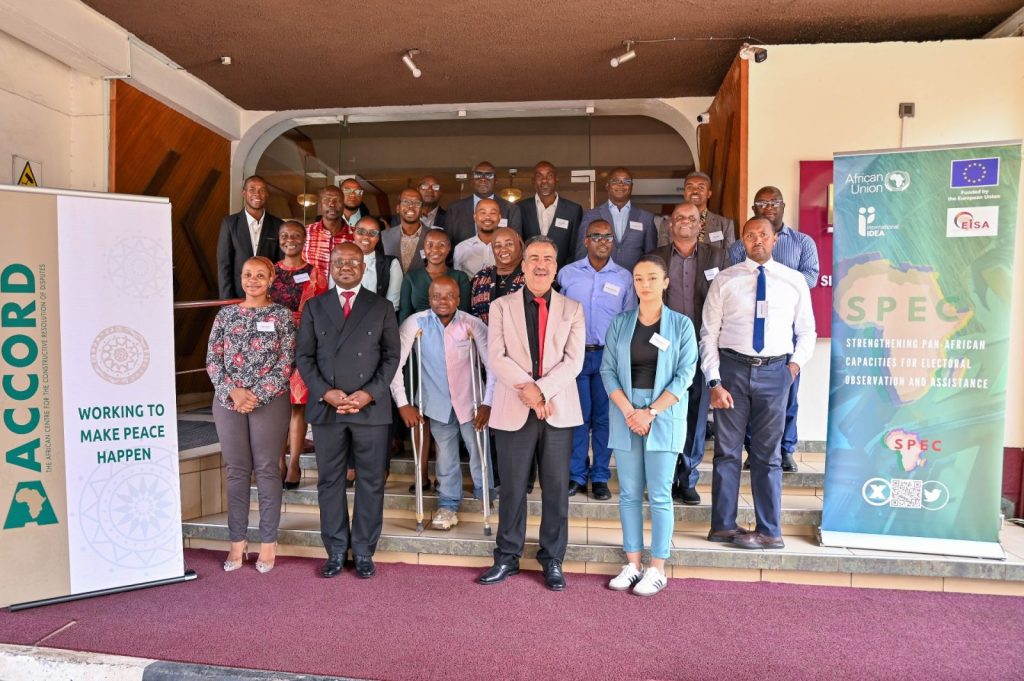The African Centre for the Constructive Resolution of Disputes (ACCORD) recently published a Policy & Practice Brief (PPB) entitled The OAU/AU and an Africa at peace with itself: Time for serious business (available in English and French). Authored by ACCORD Senior Research Fellow Angela Muvumba Sellström, this brief forms part of ACCORD’s contribution to the Golden Jubilee celebrations of the 1963 founding of the Organisation of African Unity (OAU)/African Union (AU).
Muvumba Sellström’s PPB reviews the successes and triumphs of the African Peace and Security Architecture (APSA), set against the constraints and challenges of making peace in difficult times.
The author explores the birth, development and impact of the OAU and its transition into the AU in 2002. She explores the state of the African continent in the context of the 50th anniversary of the OAU/AU, emphasising recent positive developments. Muvumba Sellström highlights findings, backed by research, that indicate that:
- Sub-Saharan African countries are some of the most promising economies in the world.
- One-third of economies in sub-Saharan Africa grew by about 6% in 2012 due to ‘robust domestic demand, steady remittance flows, still high commodity prices, and increased export volumes – thanks to increased investment flows to the natural resource sector in recent years.
- ‘Growth on the continent did not slow during the global economic downturn which began in 2008.
- The proportion of people living on less than US$1.25 a day decreased from 56.5% in 1990 to 47.5% in 2008.
Muvumba Sellström, however, cautions that Africa’s euphoria over its recent economic growth should be moderated by attention to the continent’s unaddressed social, economic and political problems. She explains, for instance, that despite increased economic growth in some African countries, the region’s economies continue to appear among the least competitive in the Global Competitiveness Index with 14 out of the world’s 20 lowest-ranked economies being in Africa. The author proposes that African governments should establish clearer criteria for their common agenda, including the AU’s efforts to respond to peace and security.
The brief concludes by advancing a number of recommendations which the AU and African stakeholders should work toward in its Agenda 2063 – the AU’s vision for the next 50 years. The suggestions put forward in the PPB are timely and underscore what is reflected in the AU’s own documents and commitments. Among others, Muvumba Sellström proposes that:
- African governments prioritise efforts to build equal societies by focusing on: ensuring the domestication of Africa’s gender instruments; harnessing demand for the continent’s natural resources for the benefit of all Africans; consolidating and making transparent the AU’s economic leverage when African governments negotiate with external actors; and scaling-up support for small-scale agricultural, education and healthcare sectors in the different countries.
- Acknowledging that the AU’s norms for peace and democracy require an improved democratic culture, civil society should become a conduit for building an educated and aware public, which is capable of bearing the responsibilities as well as rights of democracy.
- African governments should work for the long-term to be able, by 2063, to finance their own governance and peace and security institutions, while civil society should return to addressing environmental, economic and social problems at grassroots level – some of which require new linkages between academia, communities, media institutions and practitioners and the private sector.
ACCORD PPBs aim to provide succinct, rigorous and accessible information and recommendations and to stimulate informed and relevant debate to promote dialogue as a way to peacefully resolve conflict.
Muvumba Sellström’s brief forms part of ACCORD’s work on peacemaking, peacekeeping and peacebuilding in Africa and the institution’s ongoing support to the African Union, particularly as it examines the role and impact of APSA and its contribution to conflict resolution, peace and security and sustainable development on the continent.
This PPB is published and printed in both English and French. To request physical copies or to receive e-mail alerts of any ACCORD publications please send an e-mail to publications@accord.org.za.







